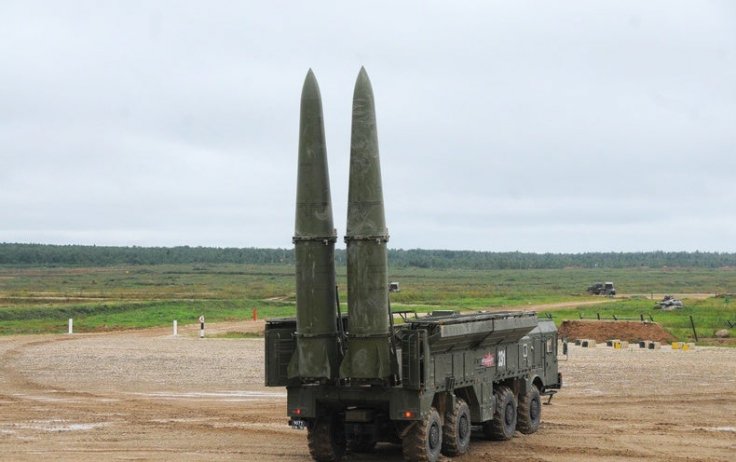When Russian President Vladimir Putin, at the start of the invasion, had alerted his nuclear forces to be combat-ready, strategic experts had observed the move as an attempt to threaten and alarm the West over its support for Ukraine.
But as capital Kyiv remains still out of Russia's control after three weeks of the invasion, war strategists endorse speculation that Putin could consider using tactical nuclear weapons, which affect a very limited war zone and do not make a wider effect as nuclear bombs in Hiroshima and Nagasaki had made.

Tactical Nuclear Weapons
Tactical nuclear weapons could be used over shorter distances and can be placed on various types of missiles which are normally used to deliver conventional explosives.
Such weapons can also be fired as artillery shells and are also developed for aircraft and ships.
Russia is believed to have nearly 2,000 tactical nuclear weapons, which are possibly in storage facilities rather than in a ready-to-fire positioning.
Kalibre and Iskander M missiles
They include Kalibre missile -- a submarine and ship-launched cruise missile system -- which has a range of nearly 1500-2500 km.
Russia's such tactical nuke weapons also include the Iskander M missile launcher, a ground-based missile system designed as a solid-fuel rocket that has a range of 400-500 km.
One Kiloton and 800 kilotons
Such tactical nuclear weapons have different sizes and capacities as the smallest can be one kiloton or less (equivalent to a thousand tonnes of the explosive TNT) - the larger ones perhaps as big as 100 kilotons, reported BBC.

Notably, the two weapons that were used during World War II in Hiroshima and Nagasaki were 15 kilotons and had killed nearly 1,46,000 people. Russia is currently believed to have its highest capacity weapons of nearly 800 kilotons.
Is Russia Interested in Using Such Weapons
Since the start of the Ukraine invasion, Vladimir Putin has mentioned nuclear weapons several times in his speeches, a clear indication that experts see as a warning to the West of possible consequences if it directly involves in Ukraine affairs.
Strategic experts have also claimed that Putin's continuous references on nuke weapons are aimed to create a sense of fear at the time of war.
But Russia has flexed its muscles whenever it is sparked or threatened by the West -- Kremlin's attack against Georgia in 2008, Crimea annexation in 2014 and the current Ukraine invasion are examples that Moscow has never feared in taking aggressive steps, an indication which fuels the possibility that it could consider using the tactical nuclear weapons in the Ukraine war.








